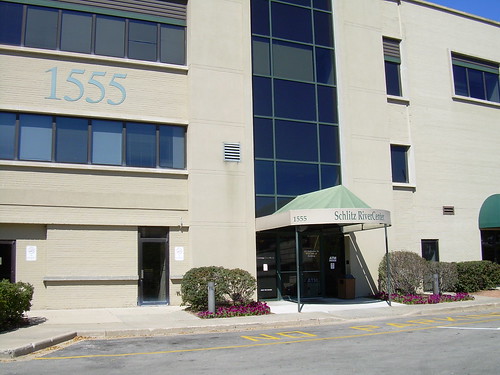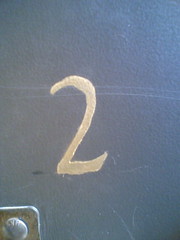We stopped by the new venue for BarCampMilwaukee2 on Saturday… if you missed the news, we had to change venues, as Bucketworks will not be ready in time to host the event. Bucketworks is still involved, and are the ones who managed to get this new space for us. Anyway, we took a look at the place, and did a bit of cleanup and planning. The new space provides some challenges, but nothing we can’t overcome. First, some photos…
This is what you will be looking for when you arrive at BarCampMilwaukee2. That’s the door you go in. You may need to give your name to a security guard, so make sure we have your real name.
Inside the place, it’s pretty much wide open. We’ll do our best at breaking up the space, there are not really separate rooms, it’s just one big room. (It was a cube farm.) There are outlets as needed, but bring a power strip. There should be wifi access points, BUT! (and here’s the BIG BUT) We have no connection to the internet! Yup, that’s right… as of right now, there is no connection to the outside world, which, sort of sucks. This is the biggest problem we have to fix. And we’ve got under 30 days to do it. If you can help with this, let us know. It’s top of the list right now.
And now, more photos…
Some good news: We will have plenty of parking, there are bathrooms and vending machines right outside the big room, the floors are carpeted and nice to sit on. It’s clean, there are nice windows to look out of, and… it’ll work. We really could use an internet connection though…
One more photo, a panoramic view of the whole space. You’ll really need to view the large version for the full effect…
(P.S. If you can help us get an internet connection, please let us know.)










